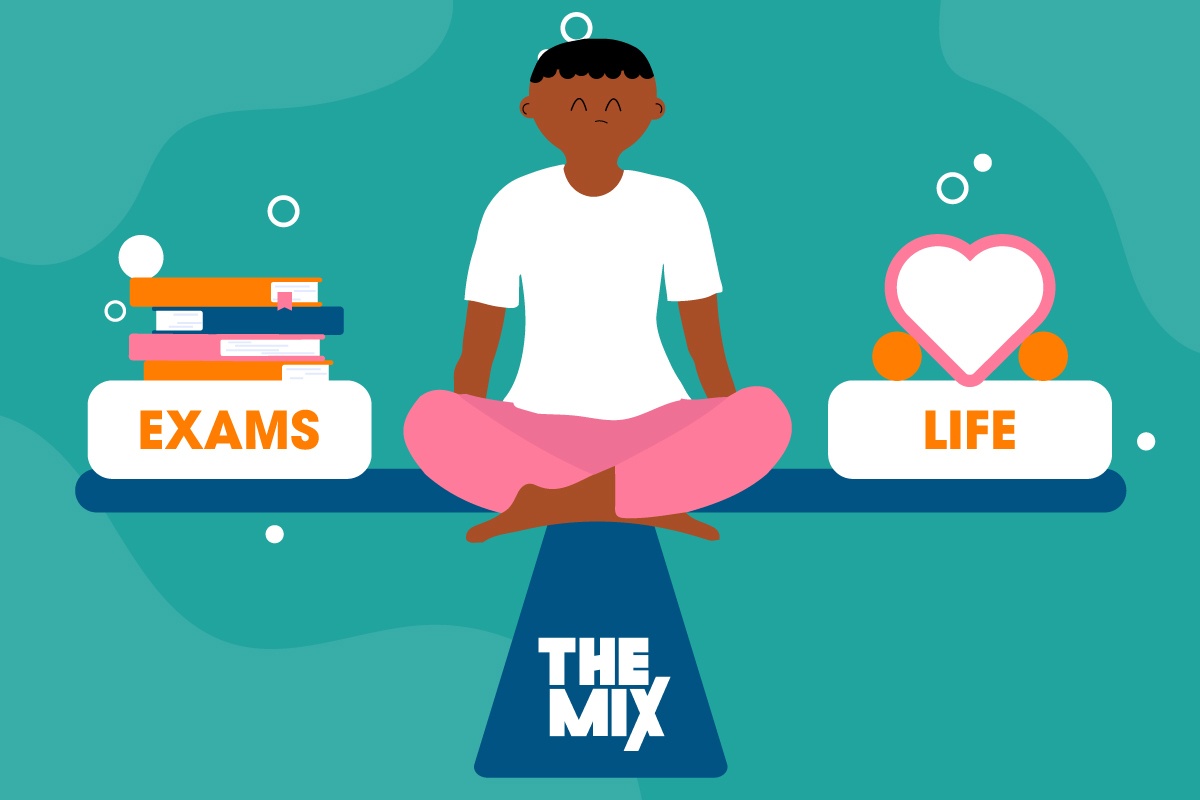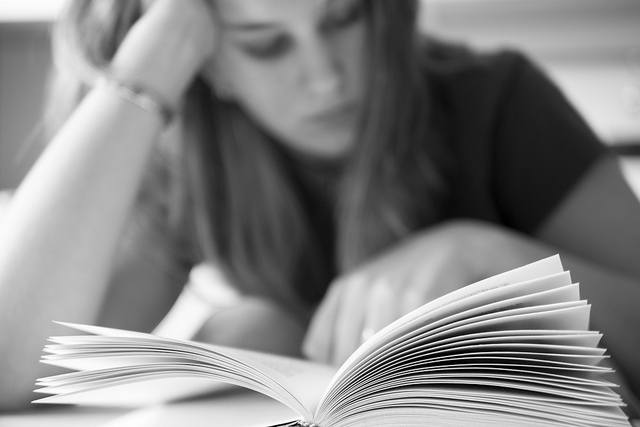How to cope with exam season


My name is Zainab Malik. I am 18 years old and currently on my gap year, after having studied A-Levels in Religious Studies, Law and History. I volunteer with The Mix, mostly on projects that allow me to do research and write articles. I’m interested in culture, theology and reading old pretentious books with dusty jackets.
Exam season rituals
You pack your pencil-case with everything you could possibly need. You make sure to have a big breakfast, also a snack so that your stomach won’t rumble in front of everyone else. That would be very embarrassing. You try to spot your friends standing in lines outside the hall, brave a wink, and get in good with God in the few seconds before you have to go in. Finally, once you settle in, you sit very still while the invigilators begin their dross. Or at least, that’s what I always did.
These yearly rituals, beginning with year 10 mock exams, became habits for me and therefore comforting. I liked to know what to do, where to go and how to behave. I knew that I could risk turning around before the invigilator began speaking (technically speaking, I wasn’t ‘allowed’ – but I couldn’t help myself and was comforted to find I was never alone). But I also knew that I couldn’t take the same risk during the exam because the collective patience of the invigilators becomes threadbare 30 minutes in.
My 2021 exam experience
But in 2021, in the middle of my A-Level exams, these rituals were destroyed. I did not do my exams in an exam hall, but rather in the classes I did my regular lessons in, next to my classmates. Some exams were open-book while others were not. I even got to pick where and next to whom I wanted to sit for my Philosophy exam!
These rapid, often unexplained changes meant that I was never quite prepared for the experience of taking an exam in an environment saturated with covid-anxiety. This anxiety was anxiety palpable everywhere and in everyone: it was unsafe to be in an exam hall, I was told, but okay to sit in close quarters with your classmates who you’d been sitting next to everyday prior to the exam with masks over your face. Precautions scrupulously observed before the exams were scrapped for the exams to take place.
Contradictions multiplied. I was told to be grateful that the workload had decreased, but it wasn’t until the month before, sometimes two-three months before the actual exam if you were lucky, that students were told which parts of the course we’d be tested on. In effect, because I was finished with most of my courses, I really did study as if for an ordinary exam – the ordinary workload in an extraordinary context. Uncertainty tainted every month, from September 2020 when classes started again sporadically, until July 2021 when I finished my A-Levels.
Coping with exam stress in difficult times
Some things helped. Hardly consoled by the cryptic half-answers teachers were dishing out, I knew that creating my own rituals could help me to cope with what shaped up to be a very unusual exam season. I made some changes.
My tips for de-stressing during exam season
Rest- you need it!
Sleep is non-negotiable for students who want to use their maximum brain power during the day. It makes no sense to spend hours revising, only to give your brain insufficient time to absorb what you’ve learned. Unfortunately, I had to learn the hard way that your brain operates on its own time – you can’t rush sleep, you can’t be ‘efficient’ about it, and you can’t trick it by feeding yourself power snacks the morning after a night of bad sleep. You have to work with your body’s natural functions – sleep plenty, exercise because your body needs it, and nourish yourself properly because your body deserves it.
Be okay with doing nothing
Another tip that helped me cope with exam stress was to ‘de-plug’. It was extremely important for me to have quiet, relaxed moments where I wasn’t doing much at all. This might seem like a strange bit of advice on the surface, especially because of the modern obsession with ‘productivity’- we’re told to jam-pack our every hour and even minute with information and action. In between flourishes of activity, we’re told to listen to educational podcasts and to read articles about topics we’re not interested in, only because it will help us to appear well-informed. Unfortunately, an action-packed lifestyle leaves an exhausted student who cannot concentrate on their schoolwork.
Moments of inactivity are as important as moments of bluster and motion. So I began to prioritise spending sunny afternoons on the phone with my friends after a long day of lessons, and then on long evenings I’d read a book I really liked. In between these moments of leisure, I planned my time efficiently so that I did pack in those essential hours of work.
In conclusion
Everyone’s heard of a work-life balance, but it’s impossible to stress enough just how central this balance is to a successful exam season. Learning to be disciplined and productive in the face of stress is one of the most important life lessons we can possibly learn. The exam season, in short, prepares us for what’s to come! Be brave, be bold and, as my secondary school motto went, be the best that you can be!
Helpful resources
Head to The Mix’s work and study hub for tips and information.
Read Sharvari’s guide to revising without burning out.
Take a look at this Anna Freud guide to self-care.
Mind has lots of resources for looking after your mental health.
Action for Children’s toolkit for writing to improve your mental health.
Next Steps
- Chat about this subject on our Discussion Boards.
By
Updated on 16-May-2022
Sorry, comments closed
No featured article














